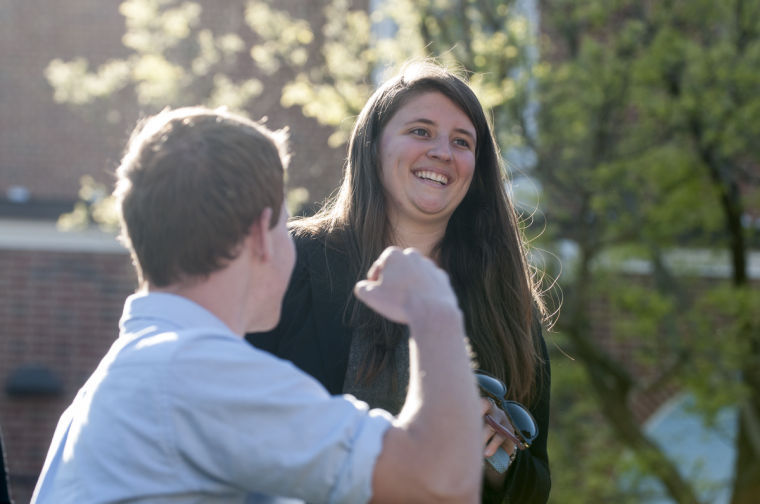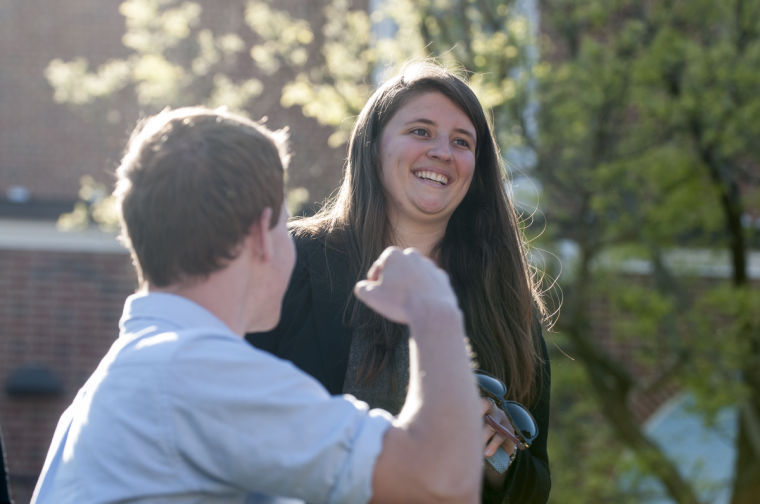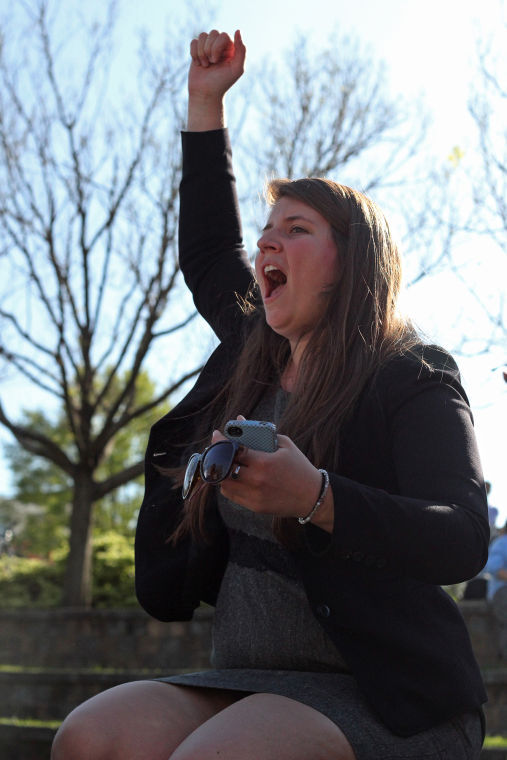The student body re-elected incumbent SGA President Samantha Zwerling yesterday, along with all of the Go Party executive candidates and a majority of its legislative candidates.
Of the 4,709 undergraduates who cast their ballots for a presidential candidate — about 20 percent more than last year — 2,862 voted for Zwerling, giving her nearly a two-thirds majority over Time Party challenger Noah Robinson, who received 1,663 votes.
“I am very excited,” Zwerling said. “It feels like I can move on with my life now.”
Robinson was absent when the election results were announced in the Nyumburu Amphitheater, because of a trip he had planned in advance, said Jonathan Lee, the Time Party’s candidate for student affairs vice president.
“I’m proud that [the] Time Party engaged thousands of students with innovative ideas to transform our campus,” Robinson wrote in an email. “Next year, I’ll continue my work helping people, both through my student organizations and in my research for my honors psychology thesis. … I’m happy that this campaign taught me so much about the intricacies of the political process.”
Of 34 legislative positions, students elected 25 Go Party candidates and nine from the Time Party.
“I am a little disappointed because we lost a couple of seats,” Zwerling said. “[They were] people who worked really hard, and now we have to work without them.”
Lee, who lost to Josh Ratner, said he’s excited for his party’s legislators who were elected.
“Now I will look towards joining a committee and expanding the outreach of RHA and through that way, work with SGA,” Lee said.
Ratner, who received 2,239 votes — just 34 votes more than Lee — said he was pleased with the voter turnout.
“The results show that students want us to finish our work next year,” Ratner said.
The seat for financial affairs vice president also ended in a close vote. The Go Party’s Andrew Aggabao received 52 percent of the votes, while Cameron Ross collected 48 percent.
Though Stephanie Graf of the Time Party lost to Meenu Singh for academic affairs vice president, she said she would still stay involved in campus issues.
“We gave 100 percent,” Graf said.
Both parties focused on social media to spread their messages to students, managing to more than double this year’s total turnout to 8,652 total votes, up from 3,913 in the 2012 election.
Facebook and Twitter also served as platforms for drama surrounding the elections.
Before campaigning officially started, a tweet by Matt Arnstine — Time Party adviser and former SGA communications director under Zwerling — accused the Go Party of early campaigning, which resulted in a $500 fine for Robinson’s team.
Earlier this week, Robinson again took flak for allegedly misusing the Maryland Compliments Facebook page as a campaigning tool. But Jon Saltzman, head of the elections board, said he had discussed the matter with Robinson before campaigning began, and no fine was given.
The Go Party was criticized for sending emails to students who had not signed up to receive campaign materials. Although election rules do not specifically ban the use of email lists for campaigning, some students said on Facebook and Twitter that Zwerling might have misused her position as SGA president to obtain email addresses from university contact lists.
“It was a rough week and a half,” Zwerling said. “Now I am going to focus on what I wanted to do.”
Her next steps will include starting interviews for the cabinet positions, she said. And after that, “just keep doing what we have been doing throughout the year.”
Go Party candidate Samantha Zwerling after hearing the announcement of her reelection as SGA President.
Go Party candidate Samantha Zwerling celebrates the announcement of an executive board win for her party.





